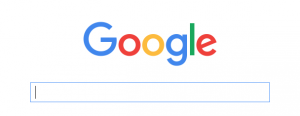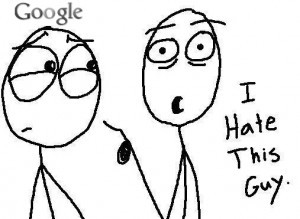The unavoidable elephant in the room these days is that Google is deeply ingrained into all of our lives, with most humans using one or more of its services everyday. For awhile I’ve been hearing various opinions on the still growing media monolith, many of which have been unfavorable, but some that lauded the company for its innovative work in technology. And while these opinions may differ depending on the service or technology being critiqued, all of these seem to be asking the bigger question, what exactly is Google doing to our lives?
Google can sometimes seems as comfortable and familiar as one’s own skin, giving us the freedom to search for whatever information we want and allowing us to collaborate with others from our own home via their cloud services. Other times we hear about features that can actually frighten us a little bit, namely Google diagnosing your ailments via a few search queries. The way I see it, we can handle the inevitable rise of Google in two ways.
- We can succumb to Google in their rise to total media/technology domination. Let their powers dictate our lives and become nothing more than an accessory organ to their greater system.
or…
2. We can watch Google as it grows, take advantage of tools and services it provides while keeping ourselves informed about how to use these tools properly so they don’t use us.
Google is not an evil company per se. You could take isolated incidents from their career and push it whatever way you want. I’d like to think that at the end of the day they are an honest company who does want to help the world grow and expand, but understandably so, efforts of that magnitude always leads to some errors. So when I read articles like “Is Google Making us Stupid” or any article about a new service like self diagnosing, I immediately look at the advantages and disadvantages.
Yes. Google will make us stupid if we rely to heavily on it. When every question can be answered on a whim, it takes away the challenge of deduction. However, if used right Google provides the most comprehensive reference manual the world has to offer, and a resource like that is priceless. You could look at it like caffeine. We function well without it, and while we use it we seem to get a boost in activity and productivity. But be wary, for it will quickly become something to be relied upon, an addiction where you will wonder how you ever functioned normally without it. This could be the world we are heading to, but we could also take advantage of what were given with out abusing it. If google is treated in a respectful way we have much to gain from it, but ignoring those advantages because google is streamlining and simplifying processes is ignorant of our modern age. Google like any tool can be abused or utilized properly, and it is up to us to work hard and manage our usage of Google so that we stay as operators.


















